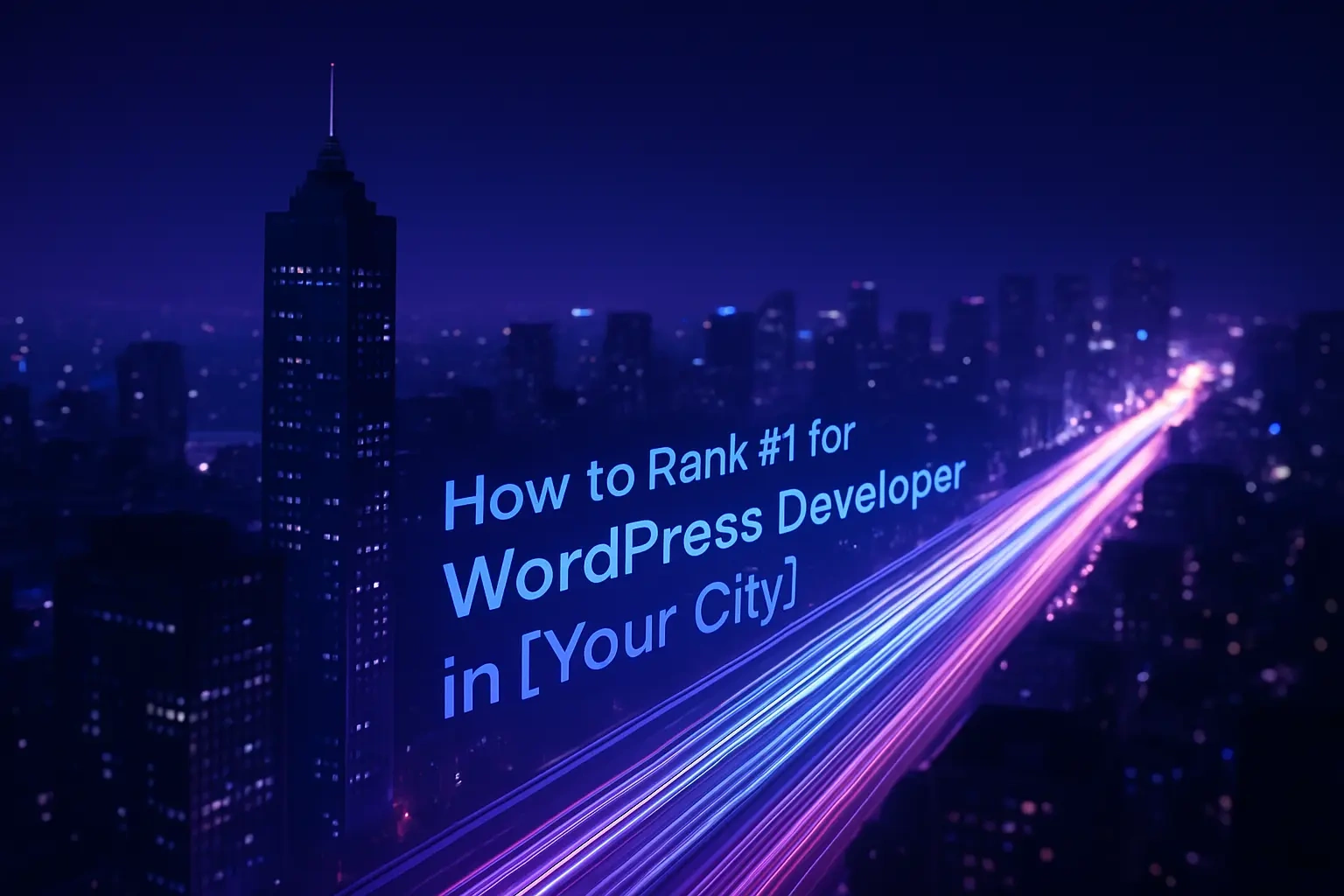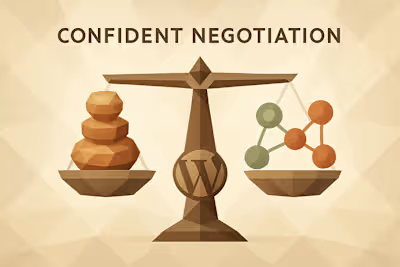How to Rank #1 for "WordPress Developer in [Your City]": A Local SEO Guide

How to Rank #1 for "WordPress Developer in [Your City]": A Local SEO Guide
Why Local SEO is a Goldmine for WordPress Freelancers
Foundational Keyword Research: 'WordPress Developer + City'
Identifying Your Core Local Keywords
Tools for Local Keyword Discovery
Optimizing Your Digital Presence for Local Search
Mastering Your Google Business Profile
On-Page SEO for Your Freelance Website
The Power of Local Landing Pages
Building Local Authority and Trust
Getting Local Citations and Directory Listings
A Strategy for Acquiring Positive Local Reviews
Tracking Your Success
Monitoring Your Local Rankings
Conclusion
References
How to Rank #1 for "WordPress Developer in [Your City]": A Local SEO Guide
Why Local SEO is a Goldmine for WordPress Freelancers
Foundational Keyword Research: 'WordPress Developer + City'
Identifying Your Core Local Keywords
Tools for Local Keyword Discovery
Optimizing Your Digital Presence for Local Search
Mastering Your Google Business Profile
On-Page SEO for Your Freelance Website
The Power of Local Landing Pages
Building Local Authority and Trust
Getting Local Citations and Directory Listings
A Strategy for Acquiring Positive Local Reviews
Tracking Your Success
Monitoring Your Local Rankings
Conclusion
References
Posted Jul 6, 2025
Attract high-quality local clients by dominating local search results. This guide breaks down the exact SEO strategies freelance WordPress developers can use to rank #1 in their city.










